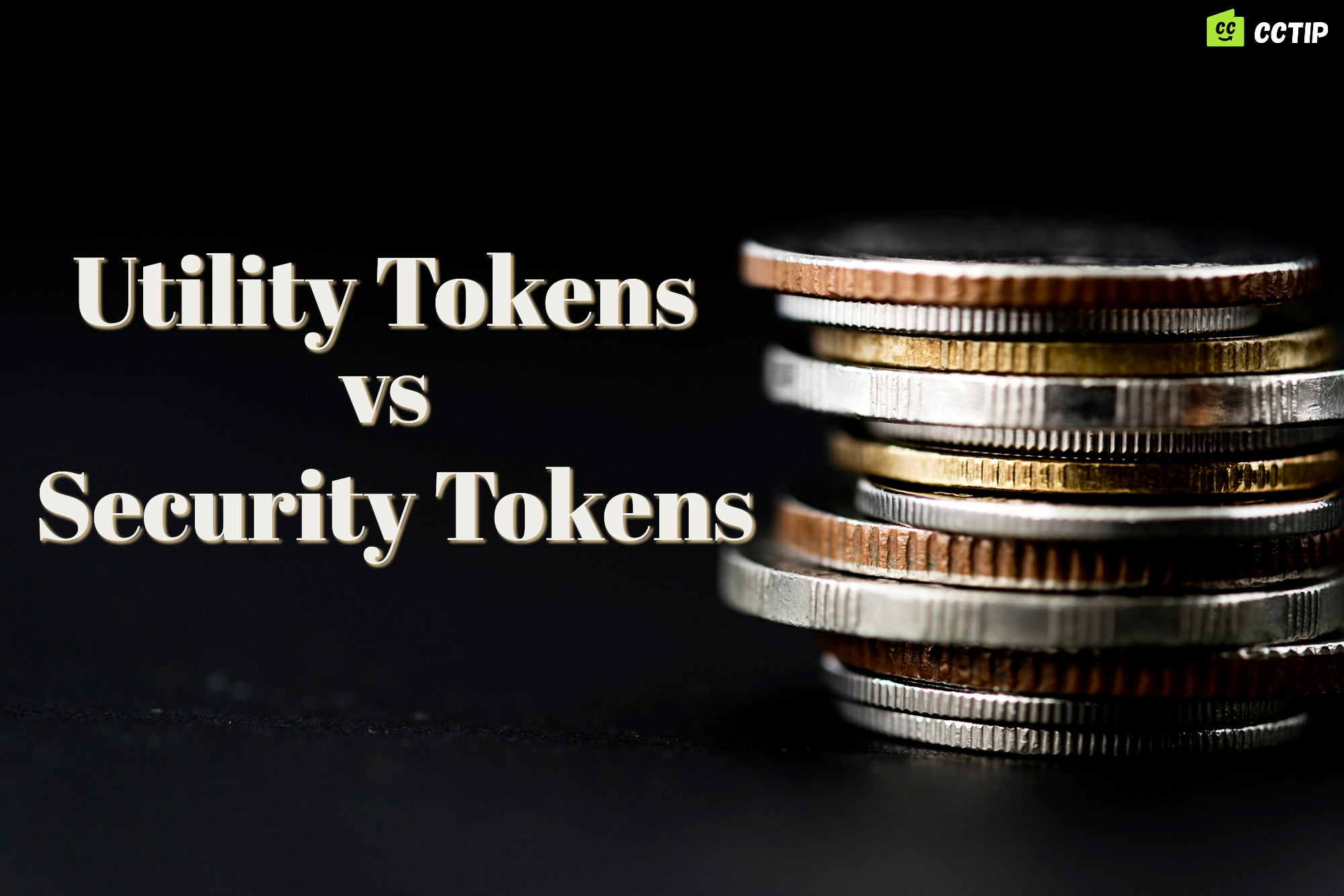Utility Tokens vs. Security Tokens: Key Difference Explained
As the name implies, the utility token's primary purpose is utilized, and investment is a secondary purpose. At the same time, security tokens' primary purpose is for investment, which is used for utility purposes as a secondary use.

Blockchain technology is revolutionizing every industry, and it has greatly impacted how we deal with investments and finances in general. Although cryptocurrency is the umbrella word for all crypto assets, they may be divided into two categories: crypto coins and crypto tokens, which are used interchangeably. While cryptocurrencies are primarily used to hold value and facilitate transactions, tokens can be used for various reasons and come in various forms. First, however, we will consider the major difference between utility and security tokens.
What Are Utility Tokens?
Utility tokens are created to function exclusively within a certain blockchain ecosystem. It is a unique kind of token that aids in the funding or capitalization of initiatives for new projects, corporations, or development teams. These token holders get special advantages, including reduced transaction fees and early access to goods and services on the network.
Utility tokens are exclusively made to be accessed to use specific platform goods and services. You can access a specific utility token's related platform and the goods and services offered by that platform if you own the corresponding utility token. For example, you could use them to pay for a service on a specific platform or cover transaction fees on cryptocurrency exchanges. BNB and ETH, for example, are both utility tokens. In addition, you can use them to pay transaction fees when interacting with decentralized applications (dApps), among other things.
Also, because utility tokens are heavily connected with new projects, they are frequently used by initial coin offerings (ICOs) for project development. ICOs exchange specialized project tokens for other cryptocurrencies or fiat funds that will be utilized for the project's final deployment. Utility tokens can be comparable to having shares in a firm; only that holders do not actually hold a financial stake in the project. Utility tokens are, therefore, not intended to be used as an investment instrument as their value is inversely correlated with their actual demand.
What Are Security Tokens?
A security token is a unique token that symbolizes a stake in an external asset or firm and is issued on a blockchain with or without permission. A security token is a digital asset whose value is derived from an exchangeable external asset. Security tokens are often immaterial possessions whose value is proportional and exchangeable with an underlying physical asset.
Furthermore, security tokens are conventional securities like stocks, bonds, and other securities issued by governmental and corporate bodies and transformed into digital tokens on the blockchain. As a result, these tokens are covered by federal securities regulations; they must abide by pertinent rules and are subject to strict protection legislation. The holders of security tokens also receive a deduction from company profits, and these digitized crypto assets can be used to create financial securities. Any non-compliance could have severe repercussions, such as fines and the potential to halt project construction if these restrictions are broken.
Security tokens are comparable to stock certificates created for investment purposes. However, ownership information is entered into a document that serves as an official certificate of ownership regarding stocks. Security tokens store similar information, with the primary distinction being that it is recorded on the blockchain and represented by a token. As a result, whenever the company that backs the project makes a profit, token holders receive a share of it in the form of extra tokens. There are three common types of security tokens: asset-backed tokens, debt tokens, and equity tokens. Read more types of security tokens here.
Utility vs. Security Tokens: The Difference
The Takeaway
As outlined in this article, the main distinction between these two fungible tokens is their use. Thus, a distinctive difference to remember is; that a utility token can be used to purchase access to a company's product, but a security token can buy you a fraction of the company. Moreover, as the name implies, the utility token's primary purpose is utilized, and investment is a secondary purpose. At the same time, security tokens' primary purpose is for investment, which is used for utility purposes as a secondary use.
Ensure to check the Cwallet Blog daily for articles that help you understand cryptocurrency and blockchain technology tenets. Join us on telegram for more information.
What's more?
Cwallet does not charge any deposits, withdrawals, and token swap fees. Therefore, using Cwallet is absolutely FREE!
So, what are you waiting for?
Download Cwallet NOW.